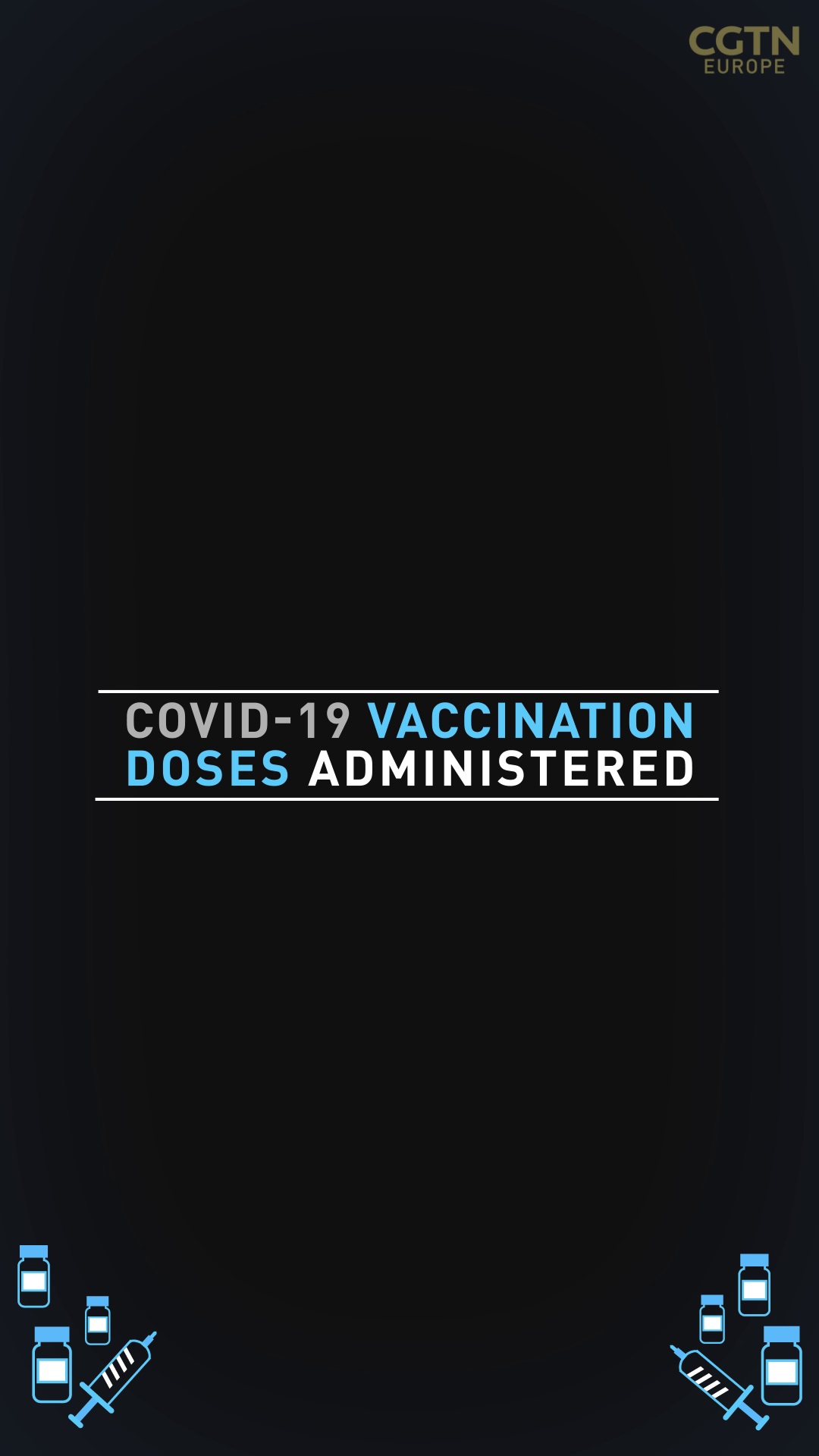
Bosnian Muslims attend Eid al-Fitr. /AP Photo/Kemal Softic
Bosnian Muslims attend Eid al-Fitr. /AP Photo/Kemal Softic
TOP HEADLINES
• The European Commission has cleared Italy to give 12.8 million euros ($15.4 million) in state aid to the floundering Alitalia airline to help it absorb the losses caused by the coronavirus pandemic.
• Malta has become the first European Union member state to offer COVID-19 vaccines to 16-year-olds and above.
• The German government eased entry restrictions for travelers, allowing people who have been fully vaccinated or have recovered from the coronavirus to enter the country without any quarantine obligation.
• Montenegro relaxed its COVID-19 epidemiological measures as the country registered a record low number of new cases since last September.
• Coronavirus cases are exploding in the Asia-Pacific region, with more than 5.9 million new confirmed infections in the past two weeks, more than in all other regions combined, the International Federation of the Red Cross said.
• The AstraZeneca vaccine will cease to be part of Norway's mass vaccination program, Prime Minister Erna Solberg has announced.
• The European Commission called on EU member states to temporarily halt non-essential travel from India to limit the spread of the B.1.617.2 variant, behind the devastating surge in cases in the South Asian country.
• Russia recorded its first cases of the B.1.617.2 variant, the Kommersant newspaper reported on Thursday, citing authorities in the Ulyanovsk region.
• India recorded more than 4,000 COVID-19 deaths for a second straight day on Thursday, while infections stayed below 400,000 for the fourth day. However, the virus has become rampant in rural areas where cases can go unreported due to a lack of testing.
• The English Premier League can roll over its present lucrative domestic television deal with broadcasters due to the impact of the coronavirus pandemic, the UK government announced.
• Giving a first dose of the vaccine but delaying a second dose among people younger than 65 could lead to fewer people dying of the disease, but only if certain conditions are met, a predictive modeling study published in the BMJ British medical journal showed.
00:47

AROUND EUROPE
Nicole Johnston in London
The prevalence of infections in England has halved since March, helped by the swift roll-out of vaccines. Still, according to the findings of a study run by scientists at Imperial College London, new variants remain a threat.
The government's Scientific Advisory Group for Emergencies (SAGE) is due to hold an emergency meeting to discuss the variant first identified in India. One group member has warned that the variant might delay further easing of the lockdown set for June 21.
Now classified as a "variant of concern," Prime Minister Johnson has warned it poses a "potentially lethal danger." Evidence is growing that the variant is more transmissible than that first identified in the UK.
00:20

Ross Cullen in Paris
The head of the Paris hospitals commission said: "We must vaccinate children because they can transmit the disease." Remi Salomon added: "We are entering into a period of uncertainty with three to four difficult months to come."
During an interview on breakfast media, Salomon said that "if people are rational and the vaccination campaign continues at a fast pace, we can avoid a fourth wave."
France's High Authority for Health has reiterated its guidance that the AstraZeneca vaccine should only be given to people aged 55 and above. Another blow, following Norway's decision to drop the jab, for the British-Swedish pharmaceutical company's vaccine effort.
Penelope Liersch in Budapest
From Thursday, 16 to 18-year-olds will start receiving the Pfizer jab in Hungary. It's the youngest age group in the country to be offered the vaccination. An estimated 90,000 teens have registered for appointments from Thursday that will continue over the weekend. Without a vaccination card, minors can only enter businesses and services such as pools, gyms, libraries, indoor dining and sporting events with a vaccinated parent.
READ MORE: First baby in Spain born with COVID-19 antibodies
In Slovakia, people waiting for their first vaccine dose who would have had AstraZeneca will be administered the Pfizer-BioNTech or Moderna jabs instead after the country paused use of the AstraZeneca vaccine.
The government has promised to shortly make it possible for individuals to pick their preferred vaccine. This includes non-registered vaccines, particularly Sputnik V, which Russia delivered to Slovakia in March. Authorities say the roll-out of the Russian vaccine can start in June since Russia has officially signed approval for its use in Slovakia.
FROM OUR GLOBAL COLLEAGUES
CGTN Europe: Holiday bookings, flights and prices rise amid optimism for European getaways
CGTN China: China inaugurates national disease control and prevention bureau
CGTN America: More Americans trading stocks despite pandemic's economic impact
CGTN Africa: Hit by COVID, Senegal's women find renewed hope in fishing
Sign up here to get the COVID-19 Europe bulletin sent directly to your inbox.
CGTN Europe has been providing in-depth coverage of the novel coronavirus story as it has unfolded.
Here you can read the essential information about the crisis.
Source(s): Reuters
,AFP
,Xinhua News Agency
,AP

